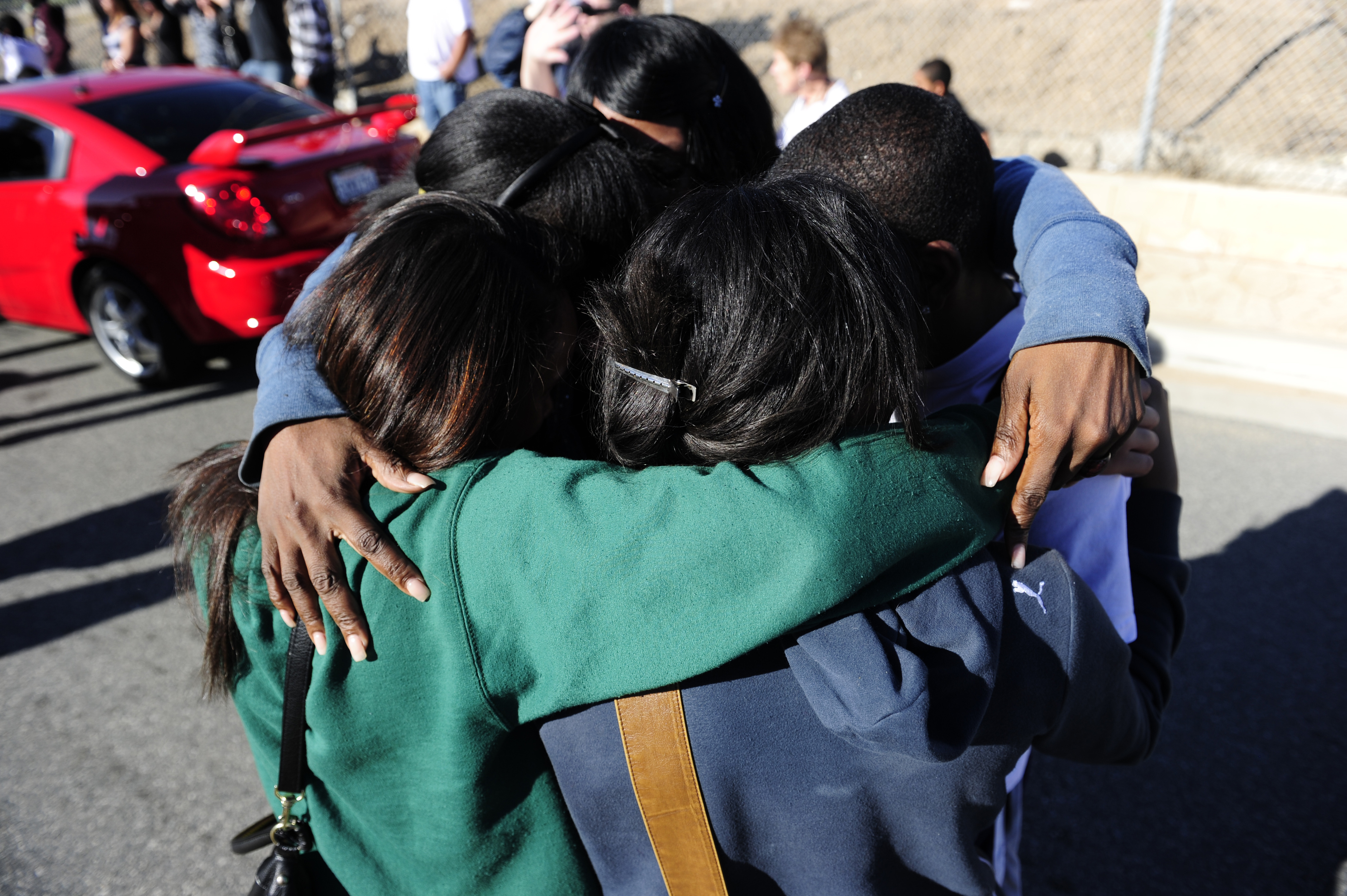Here are the heartbreaking psychological effects school lockdowns left on 4 million children last year


Every day, 16 schools around the U.S. undergo a lockdown. Nine of them stem from the threat of gun violence.
Most of these incidents end without incident, The Washington Post found in an extensive analysis published Wednesday. But they've left students texting love letters to their families and writing wills that include their PlayStations as they huddle in darkened classroom corners.
In a corner of MaKenzie Woody's Washington, D.C. classroom, there's a "taped-up list of phrases the kids were encouraged to say to each other" during a lockdown, the Post writes. They include "I like you, "you’re a rainbow," and "are you okay?" Woody is 6 years old and has "never heard of Parkland or Sandy Hook or Columbine," the Post writes. But she's still afraid of going outside for recess "because what if someone was shooting ... and everybody got hurt," she said.
The Week
Escape your echo chamber. Get the facts behind the news, plus analysis from multiple perspectives.

Sign up for The Week's Free Newsletters
From our morning news briefing to a weekly Good News Newsletter, get the best of The Week delivered directly to your inbox.
From our morning news briefing to a weekly Good News Newsletter, get the best of The Week delivered directly to your inbox.
In the 2017-18 school year, at least 4.1 million students underwent 6,200 lockdowns across the U.S., the Post's analysis of school district data and news stories found. One million of the affected students were in elementary school. And yet that number is probably low "because many school districts — including in Detroit and Chicago — do not track [lockdowns] and hundreds never make the news," the Post says.
The threats that spark these attacks are "often anonymous and seldom legitimate," the Post writes. Still, "experts who specialize in childhood trauma suspect that a meaningful percentage" of students will undergo psychological effects for years to come. Read the whole analysis at The Washington Post.
A free daily email with the biggest news stories of the day – and the best features from TheWeek.com
Kathryn is a graduate of Syracuse University, with degrees in magazine journalism and information technology, along with hours to earn another degree after working at SU's independent paper The Daily Orange. She's currently recovering from a horse addiction while living in New York City, and likes to share her extremely dry sense of humor on Twitter.
-
 A peek inside Europe’s luxury new sleeper bus
A peek inside Europe’s luxury new sleeper busThe Week Recommends Overnight service with stops across Switzerland and the Netherlands promises a comfortable no-fly adventure
-
 Son arrested over killing of Rob and Michele Reiner
Son arrested over killing of Rob and Michele ReinerSpeed Read Nick, the 32-year-old son of Hollywood director Rob Reiner, has been booked for the murder of his parents
-
 Rob Reiner, wife dead in ‘apparent homicide’
Rob Reiner, wife dead in ‘apparent homicide’speed read The Reiners, found in their Los Angeles home, ‘had injuries consistent with being stabbed’
-
 Hungary’s Krasznahorkai wins Nobel for literature
Hungary’s Krasznahorkai wins Nobel for literatureSpeed Read László Krasznahorkai is the author of acclaimed novels like ‘The Melancholy of Resistance’ and ‘Satantango’
-
 Primatologist Jane Goodall dies at 91
Primatologist Jane Goodall dies at 91Speed Read She rose to fame following her groundbreaking field research with chimpanzees
-
 Florida erases rainbow crosswalk at Pulse nightclub
Florida erases rainbow crosswalk at Pulse nightclubSpeed Read The colorful crosswalk was outside the former LGBTQ nightclub where 49 people were killed in a 2016 shooting
-
 Trump says Smithsonian too focused on slavery's ills
Trump says Smithsonian too focused on slavery's illsSpeed Read The president would prefer the museum to highlight 'success,' 'brightness' and 'the future'
-
 Trump to host Kennedy Honors for Kiss, Stallone
Trump to host Kennedy Honors for Kiss, StalloneSpeed Read Actor Sylvester Stallone and the glam-rock band Kiss were among those named as this year's inductees



